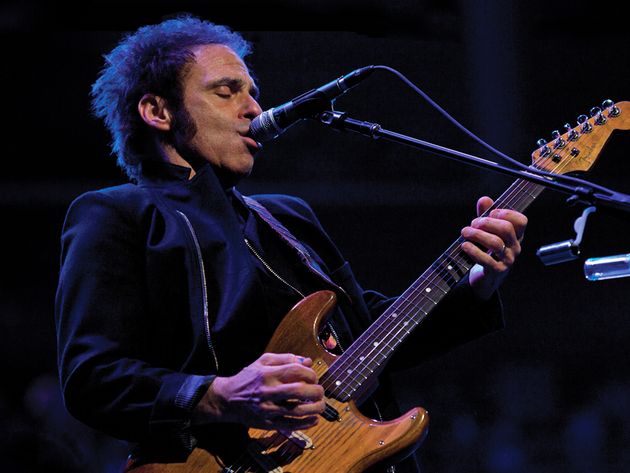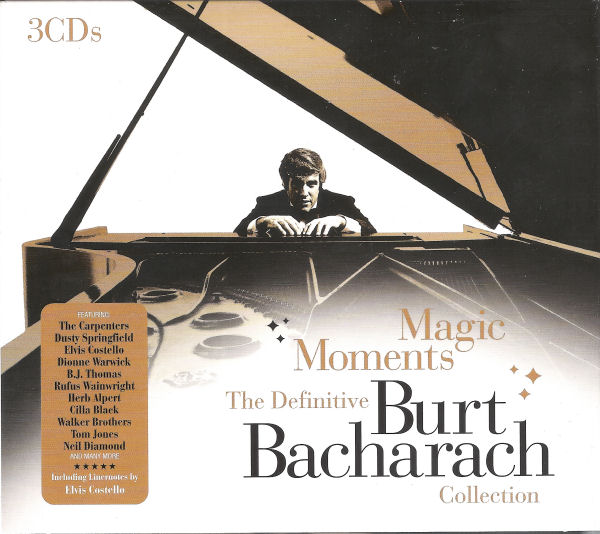Nils Lofgren



"I was living in Liverpool when I picked up a copy of Grin's first album in the shop where all the cool records hid. I knew Nils' playing from his work with Neil Young but never expected to encounter this beautiful voice and songs 'Like Rain.'
Here's some words from the chorus: Love you like rain, Darlin' / Always fallin'
How beautiful is that?
The whole story is seven words.
I didn't know any girls with a 'Saturday night dress' but quickly learned 'Take You to the Movies Tonight' and hoped that if I sang it as pretty as Nils did, then maybe I might find one and one day, I did.
The first time I saw Nils Lofgren, it was in London, he was flying through the air with the greatest of ease. He sings like that, he plays the guitar AND the accordion and now he turns out to be a world-class gymnast with a vaudeville specialty. I was jealous. It is possible to have two left feet. I have three of them.
A new band from Gainesville were on the bill that night. The way I remember it, Tom Petty was the opening act.
Like a lot of multi-talented people, Nils has the power to surprise. You'd come in the door to hear him sing like a bird and he would launch into a guitar solo worthy of Jimi Hendrix, turning somersaults right there on his fretboard. I've heard him do this in the middle of a Springsteen show and nearly steal the limelight. Only a very secure bandleader would let this guy on the bandstand, only a great musician like Nils knows when the spotlight truly belongs to him.
When I first came to America, we were still pretending we'd made everything up and there was no past. You could say, 'What a bunch of clowns' but it was just youthful arrogance and insecurity. When I got to Santa Monica on our second visit and found Nils had come to say 'hello,' I tried not to make a fool of myself but knew if we had people like Nils listening, then it would never matter what it said on the fashion page.
I had heard the echo of a Four Tops song in that very first Nils tune that I'd loved, so I knew that he had begun as a listener then brought in the gifts he had in order to tell the tale. Nils truly does know how to 'Back It Up.'
Now it's years from everything and the music we were once so lucky to make has become a lifetime affair. I'll listen in to this collection hoping that a later heartbreaker like 'Black Books' may be found alongside jewels that have been overlooked until now and, of course, the songs that I've carried all this time."
— Elvis Costello
Nils Lofgren interview in Rolling Stone
Extract:
Of the testimonials in the package, which ones surprised you the most?
I had no idea Elvis Costello was familiar with Grin that early on, from the very first record. I remember seeing him with the Attractions in Santa Monica and I thought, "Wow, a great band" — punk or whatever they called it. So that was surprising.
Track listing
Disc One (Grin years 1971-1973):
- 1. See What a Love Can Do 5:01
- 2. Everybody’s Missin’ the Sun 2:44
- 3. Like Rain 3:40
- 4. Outlaw 4:02
- 5. If I Were a Song 3:10
- 6. We All Sung Together 3:43
- 7. Take You to the Movies Tonight 1:45
- 8. White Lies 3:28
- 9. Slippery Fingers 4:00
- 10. Moon Tears 2:18
- 11. Lost a Number 3:09
- 12. Soft Fun 5:40
- 13. Hi, Hello Home 2:29
- 14. Love or Else 3:40
- 15. Sad Letter 3:11
- 16. Ain’t Love Nice 2:09
- 17. She Ain’t Right 3:27
- 18. All Out 3:01
- 19. Rusty Gun 2:20
- 20. Beggar’s Day (Eulogy To Danny Whitten) 4:18
- 21. One More Time 5:10
- 1. One More Saturday Night 3:06
- 2. If I Say It, It’s So 3:03
- 3. Can’t Buy a Break 3:15
- 4. Back It Up 2:23
- 5. I Don’t Want to Know (Live Bootleg Version) 3:48
- 6. The Sun Hasn’t Set on This Boy Yet 2:48
- 7. Rock and Roll Crook 2:53
- 8. Two by Two 3:04
- 9. Cry Tough 5:06
- 10. It’s Not a Crime 4:12
- (Nils Lofgren & Tom Lofgren)
- 11. Share a Little 5:13
- 12. Can’t Get Closer (WCGC) 3:43
- 13. Mud in Your Eye 2:40
- 14. I Came to Dance 4:30
- 15. Home Is Where the Hurt Is 4:12
- 16. Rock Me at Home 4:30
- 17. You’re the Weight (Live/1977) 5:09
- 18. Goin’ South (Live/1977) 4:59
- 19. Incidentally… It’s Over (Live/1977) 4:08
- 1. No Mercy 4:06
- 2. Shine Silently 3:34 (Nils Lofgren-Dick Wagner)
- 3. Steal Away 4:05 (Nils Lofgren-Dick Wagner)
- 4. I Found Her 3:33 (Nils Lofgren-Lou Reed)
- 5. You’re So Easy 6:00 (Nils & Tom Lofgren-Bob Ezrin-Dick Wagner)
- 6. A Fool Like Me 3:09 (Nils Lofgren-Lou Reed)
- 7. Night Fades Away 4:23
- 8. Ancient History 4:51
- 9. Sailor Boy 3:55
- 10. Empty Heart 3:03
- 11. Don’t Touch Me 4:02
- 12. I Go to Pieces 2:53 (Del Shannon)
- 13. Across the Tracks 2:52
- 14. Daddy Dream 4:53
- 15. Wonderland 3:32
- 16. Room Without Love 3:03
- 17. Confident Girl 3:06
- 18. Into the Night 3:45
- 19. Deadline 4:09
- 20. Everybody Wants 3:42
- 1. Secrets in the Street 4:33
- 2. Big Tears Fall 6:07
- 3. Dreams Die Hard 3:32
- 4. Girl in Motion 5:51
- 5. Walkin’ Nerve 3:53
- 6. Trouble’s Back 5:20
- 7. Bein’ Angry 5:54
- 8. Valentine 6:13
- 9. A Child Could Tell 4:20
- 10. You 3:30
- 11. Shot At You 5:48
- 12. Crooked Line 4:55
- 13. Someday 5:32
- 14. New Kind of Freedom 3:41
- 15. Drunken Driver 6:28
- 1. Alone 6:08
- 2. No Return 3:54
- 3. Tender Love 8:37
- 4. Dreams Come True 4:23
- 5. Out of the Grave 8:09
- 6. Lion’s Wake 2:16
- 7. Damaged Goods 3:43
- 8. Only Five Minutes 5:27
- 9. Setting Sun 3:42
- 10. Life 3:07 (Nils Lofgren-Lou Reed)
- 11. Nothin’s Fallin’ 5:06
- 12. Little On Up 5:02
- 13. Blue Skies 4:02
- 14. Black Books 5:24
- 15. Man in the Moon 3:19
- 16. Believe 3:46
- 1. Delivery Night 5:01
- 2. Code of the Road 8:20
- 3. New Holes in Old Shoes 5:10
- 4. Puttin’ Out Fires 6:22
- 5. I Found You 4:35
- 6. Love a Child 2:57
- 7. Driftin’ Man 3:06 (Nils Lofgren-Lou Reed)
- 8. Without You 3:43
- 9. Heaven’s Answer to Blue 4:17
- 10. Seize Love 5:30
- 11. Open Road 3:13
- 12. Speed Kills 3:11
- 13. I’m Buyin’ 2:52
- 14. The Wind 4:27
- 15. We Got Guys 1:07
- 16. Hard Lines 1:02
- 17. Tears on Ice 4:46
- 18. Misery 4:43
- 1. Like Rain 4:52
- 2. The Star-Spangled Banner 2:39
- 3. In Your Hands 3:19
- 4. Mr. Hardcore 5:07
- 5. Tried and True 1:56
- 6. Frankie Hang On 3:43
- 7. Fat Girls Dance 4:37
- 8. I Am a Child 3:13 (Neil Young)
- 9. Mr. Soul 4:21 (Neil Young)
- 10. World on a String 3:16 (Neil Young)
- 11. Old School 3:12
- 12. 60 Is the New 18 3:02
- 13. Miss You Ray 2:39
- 14. Amy Joan Blues 2:42
- 15. Dream Big 4:31
- 16. Irish Angel 5:10 (Bruce McCabe)
- 17. Ain’t Too Many of Us Left 4:41
- 18. When You Were Mine 4:33
- 19. Why Me 4:24
- 20. Wreck on the Highway 4:37 (Bruce Springsteen)
- 1. Keith Don’t Go 3:33
- 2. Try 3:36
- 3. Sing for Happiness 3:15
- 4. Duty 3:28
- 5. Sweet Four Wings 3:48
- 6. Just to Have You 2:17
- 7. I’ll Arise 2:51
- 8. Some Must Dream 4:46
- 9. Stay Hungry 3:41
- 10. Heaven’s Rain 3:36
- 11. Whatever Happened to Muscatel 2:49
- 12. You In My Arms 2:48
- 13. Here for You 3:37
- 14. Hide My Heart 4:22
- 15. Love Is. . . 4:28
- 16. Awesome Girl 3:36
- 17. When You Are Loved 2:55
- 18. Bullets Fever 3:06
- 19. Message 11:20
- 1. Beauty and the Beast 3:42
- 2. You Are the Melody 3:24
- 3. Tears Inside 3:32
- 4. Face the Music 4:48
- 5. I Don’t Stand a Chance 3:28
- 6. What Is Enuf?!! 4:02
- 7. London 4:03
- 8. Go Away 4:09
- 9. Heart Like A Hammer 4:11
- 10. True Love Conquers Legends 3:40
- 11. Yankee Stadium 3:02
- 12. Sad Walk 5:23
- 13. Dalmatian 4:05
- 14. I’m Coming Back 3:59 (Tom Lofgren)
- 15. Mad, Mad World 3:31
- 16. Jhoon Rhee Ad :28
- 17. It’s Better to Know You 2:43
- 18. Last Time I Saw You 2:03
- 19. Mist and Morning Rain 2:49
- 20. Miss You “C” 2:38
- 21. Oh Holy Night (Strings, Choir Arranged & Conducted by Kevin Stoller) 2:58 (A. Adams-J. Dwight)
- 1. Windy (Flip Combo) 2:03
- 2. Dream Big 5:18
- 3. Too Many Miles 7:35
- 4. Keith Don’t Go 7:13
- 5. Bein’ Angry 4:45
- 6. Shine Silently 7:03
- 7. Big Tears Fall 5:18
- 8. I Found You 6:10
- 9. No Mercy 4:24
- 10. Gun and Run 8:03
- 11. See What Love Can Do 8:03
- 12. If I Were a Song 3:03
- 13. Slippery Fingers 4:23
- 14. Like Rain 4:12
- 15. Moon Tears 5:25
- 16. I Came to Dance 11:42
- 17. Everybody’s Missin’ the Sun 3:29
- 18. Ain’t Love Nice 2:35
- 19. I’ll Arise 3:04
- 20. Nils Lofgren: The Art of Adapting 8:11



